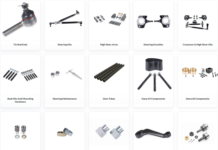Selling your home by yourself can feel empowering. You control the process, save on agent commissions, and are free to manage the sale however you want. But it can also be daunting, especially if it’s your first time. Making a mistake could cost you time, money, and a lot of stress.
If you’re asking, “How do I sell my home by myself?” you’re in the right place. In this article, you’ll discover the common mistakes people make when selling their homes on their own—and how you can avoid them.
1. Underestimating the Work Involved
Selling a house without a realtor is a demanding job. You’ll handle everything from marketing and showings to paperwork and negotiations. It’s like running a small business, requiring significant time, energy, and attention to detail.
From creating enticing listings and professional-quality photos to scheduling showings, handling buyer inquiries, and managing the negotiation process, you’ll wear many hats. Underestimating the workload can lead to stress, burnout, and potentially missed opportunities. Be honest with yourself about your capacity and availability. Create a realistic timeline and delegate tasks when possible to avoid feeling overwhelmed.
2. Pricing Your Home Incorrectly
Setting the right price is crucial for a successful sale. An overpriced home sits on the market, wasting valuable time and potentially decreasing its value. Conversely, underpricing your home means leaving money on the table.
To determine the right listing price, start by researching recent sales of similar homes in your neighborhood. Consider factors like size, condition, location, and amenities. You can also use online valuation tools, but remember that these are estimates. For a more accurate assessment, consider hiring a professional appraiser.
Remember, the goal is to attract a wide range of qualified buyers. Pricing your home competitively ensures maximum interest and potential offers.
3. Neglecting Curb Appeal
Curb appeal is a homebuyer’s first impression. A well-maintained exterior creates a positive first impression and entices potential buyers to explore further. Invest time and effort into landscaping, painting, and cleaning up your yard. A tidy and inviting entrance sets a positive tone for the rest of your home.
Pay attention to small details that can make a difference in making your home stand out even in a crowded market. Trim bushes, mow the lawn, and plant fresh flowers. Consider power washing your driveway and sidewalks to remove stains and dirt. A clean and appealing exterior also shows potential buyers that you’ve cared for the property and suggests that the interior is in good condition as well.
4. Failing To Depersonalize
Your home reflects your personal style, but it can distract potential buyers from imagining themselves living there. Items like family photos, collections, and unique décor choices can create a barrier for buyers. They need to envision the space as their own, not as an extension of your personality.
To depersonalize your home, pack up personal items and create a neutral atmosphere. This doesn’t mean your home should be devoid of character, but it should appeal to a wide range of tastes.
Generally, neutral colors on walls and minimal décor will help buyers focus on the home’s layout and features. You may also consider using subtle accents or artwork to add warmth without overwhelming the space.
The goal is to create a blank canvas that allows potential buyers to see themselves in the home. By depersonalizing your space, you increase the chances of generating interest and attracting a wider pool of potential buyers.
5. Skipping Professional Photography
High-quality photos are essential for online listings, particularly when selling without a realtor. Poorly lit or blurry images will turn buyers away. Invest in professional photography to showcase your home’s best features. Great photos can make a huge difference in attracting potential buyers.
Professional photographers know how to capture your home’s best angles and lighting, making it look its best online. They can also use editing techniques to enhance the overall appeal of your photos.
6. Ignoring Online Marketing
Online marketing is essential for selling your own home successfully in today’s digital age. Create engaging listings on real estate websites using high-quality photos and detailed descriptions to highlight your home’s unique features.
Take advantage of social media platforms to reach a wider audience and consider paid advertising to boost visibility. Optimize your online presence by using relevant keywords and incorporating local search engine optimization (SEO) techniques. This will help potential buyers find your listing easily.
7. Avoiding Open Houses
Open houses are a great way to generate interest and gather feedback. While they require time and effort, they can be worthwhile. Use open houses to showcase your home’s best features and answer potential buyers’ questions. They also provide an opportunity to gauge market interest and gather valuable feedback from potential buyers. This information can help you adjust your pricing or marketing strategy if needed.
8. Making Emotional Decisions
It’s easy to become emotionally attached to your home, especially if you’ve lived there for a long time or raised a family within its walls. To avoid emotional decision-making when selling your own home, set clear financial goals for the sale. Determine a realistic price range that aligns with your needs and the current market conditions. By focusing on these objectives, you can make informed decisions based on facts rather than sentiment.
9. Forgetting About Paperwork
Selling a home without a listing agent means a lot of paperwork. Contracts, disclosures, and closing documents can be overwhelming. Familiarize yourself with the necessary paperwork, or consider hiring a real estate attorney to assist you. Understand the different types of contracts, such as purchase agreements and addenda, and be prepared to address any questions or concerns from potential buyers.
10. Underestimating Negotiation
Negotiations are a critical part of the home selling process. They can be stressful, but with the right approach, you can achieve a favorable outcome. Understand your bottom line and be prepared to compromise.
If possible, research market trends and comparable sales to support your asking price. Practice active listening and effective communication to build rapport with a potential buyer. Be open to counteroffers, but be firm in your non-negotiables. Your aim should be reaching a mutually beneficial agreement that satisfies both you and the buyer.
Conclusion
Selling a home without a listing agent or realtor can be rewarding, but it’s also challenging. By avoiding these common mistakes, you’ll increase your chances of a successful sale. Always keep in mind that patience and perseverance are key.






























